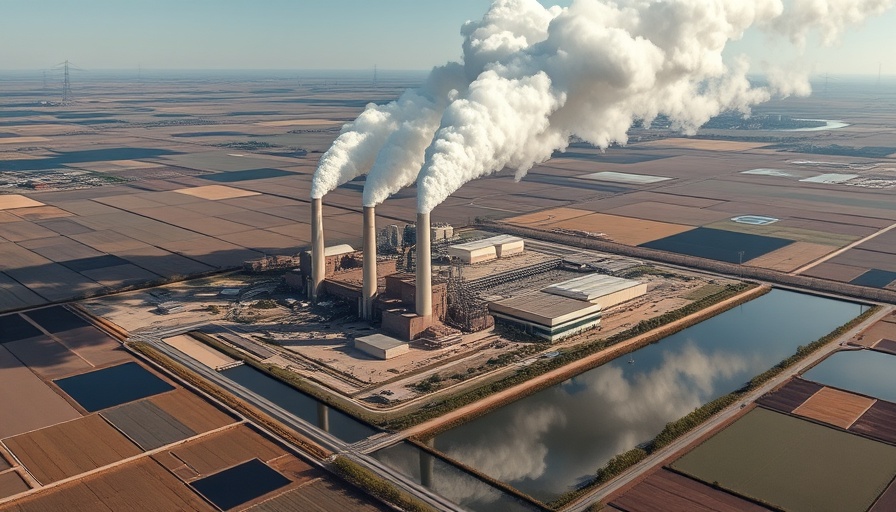
Trump's Regulatory Relief: What It Means for the U.S. Economy
In a bold move aimed at reviving key industries, President Donald Trump has announced a two-year regulatory relief plan for coal-fired power plants, chemical manufacturers, and iron ore processing facilities. These changes suspend several Biden-era regulations that the Trump administration claims are economically burdensome and detrimental to national security. This decision has sparked a flood of reactions, particularly from environmental groups and industry leaders.
Understanding the Context: A Shift in Regulatory Climate
The announcement comes as Trump aims to reassert traditional energy roles within the U.S. economy. By rolling back stringent regulations, he argues that crucial sectors like coal and chemicals can operate without overwhelming compliance costs. The decision to exempt these industries is facilitated by a process established by the Clean Air Act, which allows the government to issue temporary exemptions if compliance technologies are deemed unfeasible and national security is at stake.
The Industry's Response: An Opportunity or a Free Pass?
Industry groups representing chemical and petrochemical manufacturers quickly seized the opportunity, utilizing the EPA's newly created electronic mailbox to request exemptions. This eagerness highlights a growing trend where businesses seek means to alleviate regulatory pressures. Proponents of the regulation change laud the move as essential for economic vitality and job creation in sectors deemed pivotal to national security. Yet, critics argue this could lead to severe public health concerns, as less oversight may expose communities to higher levels of toxic emissions.
Impact on Environmental Standards: A Cause for Concern?
Environmental advocates contend that Trump's actions threaten decades of progress made in air quality improvement. John Walke, a director for the Natural Resources Defense Council, expressed concerns that the EPA's new policies could act as a 'polluters' portal,' undermining critical environmental protections meant to safeguard public health. The ramifications of increased pollution could particularly affect families living near industrial sites, leading to greater exposure to harmful substances like mercury, arsenic, and benzene.
Future Predictions: Navigating Towards Sustainability and Economic Growth
As this regulatory relief unfolds, the implications for both industry and environmental groups are significant. The trajectory of U.S. energy policy appears poised for transformation, especially as calls for sustainable practices grow louder. As industries shift back towards traditional energy sources, it raises important discussions around how the U.S. can balance economic goals with environmental sustainability. Could this herald a shift back to fossil fuels, or will there be a broader pivot towards renewable energy solutions in the future?
Key Takeaways: Who Benefits from the Changes?
Amid the fervent mix of opinions surrounding the regulatory changes, the essential question remains: who benefits most? As industries stand to gain from reduced regulatory burdens, there are vulnerable populations and environmental protections that may be compromised. A thorough analysis of these developments is vital for understanding the long-term outcomes not only for industries but for the broader public and environmental health.
Your Voice Matters: Engage with Local News
As Marin County residents, it's crucial to stay informed about such significant policy changes impacting local industries, the economy, and environmental standards. By engaging with community discussions and local news sources, you can help shape the dialogue surrounding these important issues. Understanding the details will empower you to voice your opinions and hold stakeholders accountable.
 Add Row
Add Row  Add
Add 




Write A Comment